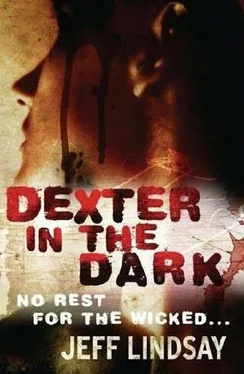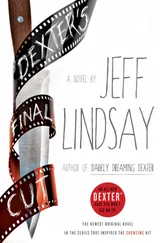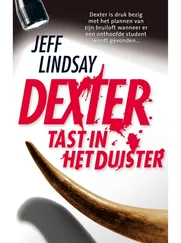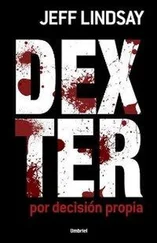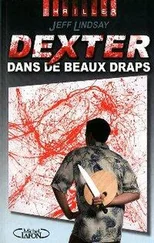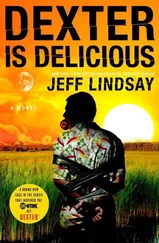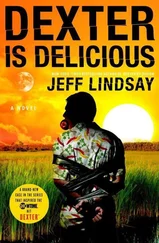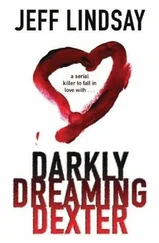“I certainly will,” he said, giving her the kind of smile that killed disco and placing a hand on her shoulder. She managed not to flinch. “I really hate to throw you back out into the rain, but…”
Deborah moved, very willingly I thought, out from under his hand and toward the door. I followed. Wilkins herded us out the door and through the gate, and then climbed into his car, backed out of the driveway, and drove away. Debs stood in the rain and watched him go, which I am sure she intended to make Wilkins nervous enough to leap from the car and confess, but considering the weather it struck me as excessive zeal. I got into the car and waited for her.
When the blue Lexus had vanished Deborah finally got in beside me. “Guy gives me the fucking creeps,” she said.
“Do you think he’s the killer?” I asked. It was a strange feeling for me, not knowing, and wondering if somebody else had seen behind the predator’s mask.
She shook her head with irritation. Water flew off her hair and hit me. “I think he’s a fucking creep,” she said. “What do you think?”
“I’m pretty sure you’re right,” I said.
“He didn’t mind admitting his affair with Tammy Connor,” she said. “So why lie and say she was in his class last semester?”
“Reflex?” I said. “Because he’s up for tenure?”
She drummed her fingers on the steering wheel, and then leaned forward decisively and started the car. “I’m putting a tail on him,” she said.
ACOPY OF AN INCIDENT REPORT LAY ON MY DESK WHEN I finally got to work, and I realized that someone expected me to be a productive drone today, in spite of it all. So much had happened in the last few hours that it was hard to adjust to the idea that most of the workday was still looming over me with its long sharp teeth, so I went for a cup of coffee before submitting to servitude. I had half hoped that someone might have brought in some doughnuts or cookies, but of course it was a foolish thought. There was nothing but a cup and a half of burned, very dark coffee. I poured some into a cup-leaving the rest for someone truly desperate-and slogged back to my desk.
I picked up the report and began to read. Apparently someone had driven a vehicle belonging to a Mr. Darius Starzak into a canal and then fled the scene. Mr. Starzak himself was thus far unavailable for questioning. It took me several long moments of blinking and sipping the vile coffee to realize that this was the report of my incident this morning, and several minutes longer to decide what to do about it.
To have the name of the car’s owner was little enough to go on-almost nothing, since the odds were good that the car was stolen. But to assume that and do nothing was worse than trying it and coming up empty, so I went to work once again on my computer.
First, the standard stuff: the car’s registration, which showed an address off Old Cutler Road in a somewhat pricey neighborhood. Next, the police records: traffic stops, outstanding warrants, child support payments. There was nothing. Mr. Starzak was apparently a model citizen who’d had no contact at all with the long arm of the law.
All right then; the name itself, “Darius Starzak.” Darius was not a common name-at least, not in the United States. I checked immigration records. And surprisingly, I got a hit right away.
First of all, it was Dr. Starzak, not Mister. He held a Ph.D. in religious philosophy from Heidelberg University, and until a few years ago had been a tenured professor at the University of Kraków. A little more digging revealed that he had been fired for some kind of uncertain scandal. Polish is not really one of my stronger languages, although I can say kielbasa when ordering lunch at a deli. But unless the translation was completely off, Starzak had been fired for membership in an illegal society.
The file did not mention why a European scholar who had lost his job for such an obscure reason would want to follow me and then drive his car into a canal. It seemed like a significant omission. Nevertheless, I printed the picture of Starzak from the immigration file. I squinted at the photo, trying to imagine it half hidden by the large sunglasses I had seen in the Avalon’s side mirror. It could have been him. It could also have been Elvis. And as far as I knew, Elvis had just as much reason to follow me as Starzak.
I went a little deeper. It isn’t easy for a forensics wonk to access Interpol without an official reason, even when he is charming and clever. But after playing my online version of dodgeball for a few minutes, I got into the central records, and here things became more interesting.
Dr. Darius Starzak was on a special watch list in four countries, not including the States, which explained why he was here. Although there was no proof that he had done anything, there were suspicions that he knew more than he would say about the traffic in war orphans from Bosnia. And the file casually mentioned that, of course, it is impossible to account for the whereabouts of such children. In the language of official police documents, that meant that somebody thought he might be killing them.
I should have filled up with a great thrill of cold glee as I read this, a wicked gleam of sharp anticipation-but there was nothing, not the dullest echo of the smallest spark. Instead, I felt a very small return of the human-style anger I had felt this morning when Starzak was following me. It was not an adequate replacement for the surge of dark, savage certainty from the Passenger that I had been used to, but at least it was something.
Starzak had been doing bad things to children, and he-or someone using his car, at least-had tried to do them to me. All right then. So far I had been battered back and forth like a Ping-Pong ball, and I had been content to take it, passively and without complaint, sucked into a vacuum of miserable submission because I had been deserted by the Dark Passenger. But here was something I could understand and, better, act upon.
The Interpol file told me that Starzak was a bad man, exactly the kind of person I normally tried to find in pursuit of my hobby. Someone had followed me in his car, and then gone to the extreme measure of driving his car into a canal to escape. It was possible that someone had stolen the car and Starzak was completely innocent. I didn’t think so, and the Interpol report argued against it. But just to be sure I checked the stolen vehicle reports. There was no listing for Starzak or his car.
All right: I was sure it had been him, and this confirmed his guilt. I knew what to do about this: Just because I was alone inside, did that have to mean I couldn’t do it?
The warm glow of certainty flickered under the anger and brought it to a slow, confident simmer. It was not the same as the gold-standard sureness I had always received from the Passenger, but it was certainly more than a hunch. This was right, I was sure. If I did not have the kind of solid proof I usually had, too bad. Starzak had escalated the situation to a point where I had no doubt, and he had moved himself to the top of my list. I would find him and turn him into a bad memory and a drop of dried blood in my little rosewood box.
And since I was running on emotion for the first time anyway, I allowed a small feeble flicker of hope to bloom. It might well be that dealing with Starzak and doing all the things I had never before done alone might bring back the Dark Passenger. I knew nothing about how these things worked, but it made a certain kind of sense, didn’t it? The Passenger had always been there urging me on-wouldn’t it just possibly show up if I created the kind of situation it needed? And wasn’t Starzak right in front of me and practically begging to be dealt with?
Читать дальше
